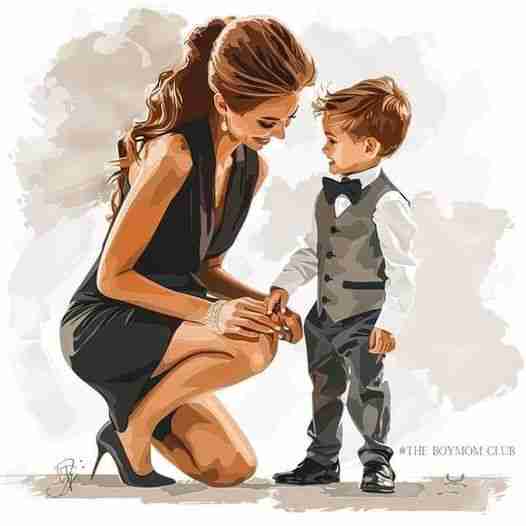Toddlers Age: My firstborn isn’t a toddler anymore

Today is my son’s birthday—he turned 4 years old! In 3 hours and 17 minutes, it will officially mark the most gratifying and memorable event in my life: his birth. It’s a super emotional day at the same time because we’ve been through a lot while he was so tiny. He was my first baby and experience, and I was learning simultaneously. It’s weird how they make you learn about yourself, your strengths and weaknesses.
He’s now officially a pre-schooler; not a newborn, not a baby and not a toddler anymore
In this article, I want to focus on everything you need to know about the toddler phase.
Toddlers are amazing little people who grow and change so fast. They’re not babies anymore, but they’re not big kids. So when exactly is a child considered a toddler?
Toddlers are usually between 1 and 3 years old. This is when kids start walking, talking, and exploring the world around them. It’s an exciting time full of milestones and new skills.
Every toddler develops at their own pace. Some may start walking early, while others take their time. Parents can help their toddlers grow by playing, reading, and spending time together. Toddlers learn so much daily; watching them become their little people is fun.
Understanding Toddler Development
Toddlers go through rapid changes in their abilities and skills. They learn to walk, talk, and explore their world with curiosity.
Developmental Milestones
Between ages 1 and 3, toddlers reach many vital milestones. Most take their first steps and say their first words around 12 months. By 18 months, many can walk independently and use simple phrases.
At 2 years old, toddlers often run, climb, and kick balls. They may know 50+ words and start putting two words together. Many can also follow basic instructions.
By age 3, most toddlers speak in short sentences. They can usually dress themselves and use utensils to eat, and throwing and catching balls becomes more accessible, too.
Cognitive Development
Toddlers’ brains proliferate as they learn about their world. They start to use their imaginations in play, and pretending with toys or dress-up clothes is common.
Problem-solving skills improve, too. Toddlers figure out how to stack blocks or do simple puzzles. They learn to sort objects by colour or shape.
Memory gets better during the toddler years. Kids may remember past events or recognize familiar people and places. They also understand basic concepts like “big” and “small.”
Emotional Changes
Toddlers experience many new feelings as they grow. They may show love by hugging or kissing. But they can also get frustrated easily, leading to tantrums.
Separation anxiety is normal for toddlers. They may cry when their parents leave. This usually improves with age as kids feel more secure.
Toddlers start to show empathy for others. They might try to comfort a crying friend or share a toy. But they’re still learning to control their emotions and actions.
Physical and Motor Skills Growth
Between ages 1 and 3, toddlers make big leaps in their motor skills. They learn to move their bodies in new ways and use their hands for more complex tasks.
Enhancing Gross Motor Skills
Gross motor skills involve large muscle movements. By age 2, most toddlers can walk steadily and run. They enjoy climbing on furniture and playground equipment.
Around 18 months, toddlers start to kick balls. By 3, many can catch large balls and ride tricycles. Hopping on one foot often comes later, closer to age 4.
Parents can help by:
- Going to parks with climbing structures
- Playing catch with soft balls
- Encouraging dance parties at home
Refining Fine Motor Skills
Fine motor skills use small muscles in the hands and fingers. Toddlers get better at grabbing, holding, and using objects.
At 18 months, a child may stack two blocks. By 2, they might build towers of 4-6 blocks. Scribbling with crayons starts around 15 months.
Fun ways to boost these skills:
- Letting kids help with simple chores
- Offering play dough to squish and shape
- Doing puzzles together
As they grow, toddlers learn to use spoons, zip zippers, and turn book pages, which helps them become more independent.
Nurturing Independence and Language
Toddlers grow fast and learn new skills every day. They need help to become more independent and speak better. Parents can easily teach their kids to do things independently and talk more.
Fostering Self-Help Skills
Encouraging independence in toddlers helps them feel good about themselves. Let them try to dress on their own. Give them easy clothes to put on, like pants with elastic waists.
At mealtimes, let toddlers use spoons and forks. They might make a mess, but it’s part of learning. Put food on plates they can’t break.
Teach hand washing with fun songs. Make a step stool so they can reach the sink. Praise them when they wash their hands well.
For potty training, get a small toilet or seat. Let them pick out fun underwear. Be patient and give lots of praise for trying.
Advancing Language Skills
Toddlers learn to talk by listening and practicing. Talk to them often about what you’re doing. Use clear, simple words.
Read books together every day. Point to pictures and ask questions. Let them turn pages and makeup stories.
Sing songs and play word games. This makes learning fun. Use rhymes and silly sounds to keep their interest.
Give them choices to encourage talking. Ask, “Do you want an apple or a banana?” instead of “What do you want?”
Listen when they talk. Repeat what they say and add more words. If they say “car,” you can say, “Yes, that’s a big red car.”
Use gestures with words. This helps toddlers understand better. Wave and say “bye-bye,” or point to your nose and say “nose.”
Addressing Common Parental Concerns
Raising toddlers can be exciting and challenging. Parents often face tricky situations that test their patience and skills. Let’s look at two significant issues many moms and dads face.
Dealing with Tantrums
Tantrums are expected during the “terrible twos” and beyond. They happen when toddlers can’t express their feelings with words. To handle tantrums:
- Stay calm and don’t give in to demands
- Offer comfort and understanding
- Give your child words to express feelings
- Use time-outs for aggressive behavior
Distractions can work wonders. Try singing a silly song or offering a favourite toy. Remember, tantrums are normal and will pass as your child grows.
Potty Training Challenges
Potty training is a big step for toddlers. Every child learns at their own pace. Here are some tips:
- Look for signs of readiness, like interest in the bathroom
- Make it fun with books or a special potty seat
- Praise successes, no matter how small
- Be patient, and don’t force the issue
Accidents will happen. Stay positive and keep trying. If you’re worried about progress, talk to your pediatrician. They can offer advice based on your child’s development.
-Plume



